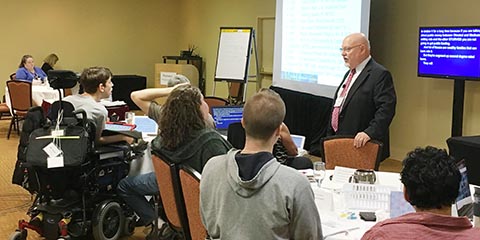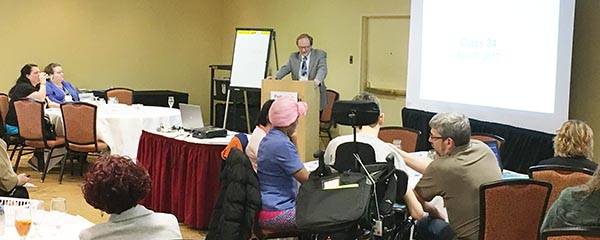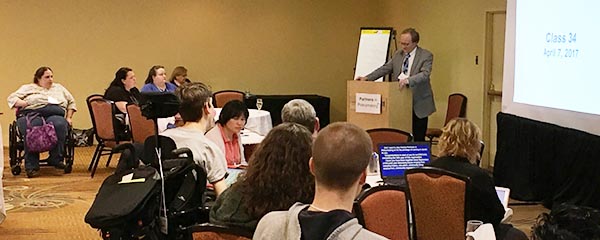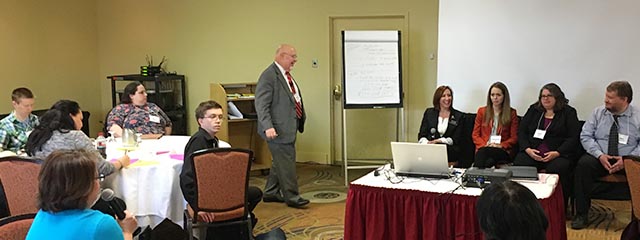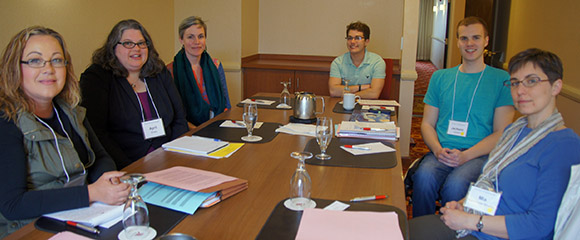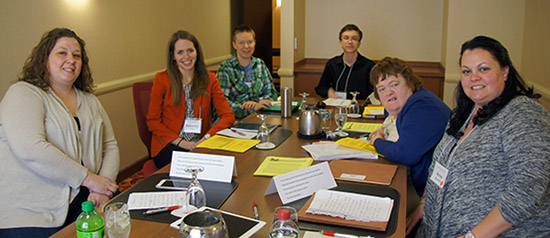Council-Sponsored Grant Activities: Partners in Policymaking®
Partners in Policymaking Class 34
Weekend 1 (September 9-10, 2016)
September 9-10, 2016 was the kick off weekend for Class 34 Partners in Policymaking. History brings awareness and understanding of how individuals with disabilities have been treated and perceived over time; and how programs and services have been created, delivered, and evolved in response. Participants learned about this history, the Parent Movement, Independent Living Movement, and Self Advocacy Movement. Partners graduates shared their stories, personal experiences, and benefits received from Partners. A highlight of this weekend session was a presentation by Bonnie Jean Smith, parent trainer, Partners graduate, and member of the Governor’s Council on Developmental Disabilities, person centered thinking and person centered planning.
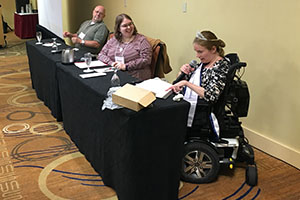
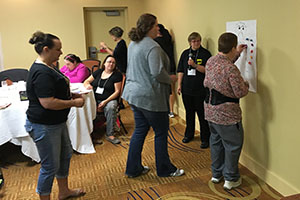
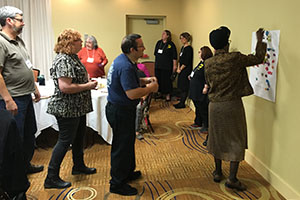
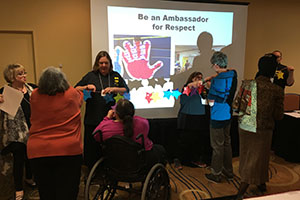

Weekend 2 (October 21-22, 2016)
The weekend of October 21-22, 2016 was devoted to Inclusive Education. Participants learned the history of education for students with disabilities, the meaning of "inclusion" and how it promotes quality of life possibilities, and the components of school inclusion. They identified creative ways for modifying or adapting basic skills that students learn in the classroom (reading, writing, math, note-taking), and came away with a wealth of resources about specific special education topics in a series of roundtables with representatives from the Department of Education. After learning how to best navigate difficult meetings, participants assumed character roles complete with costumes and props, practiced their new skills, and arrived at successful outcomes in a variety of meeting situations.
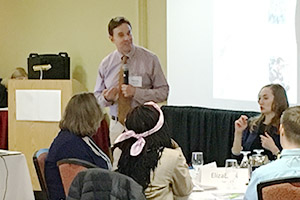
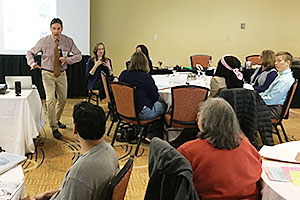
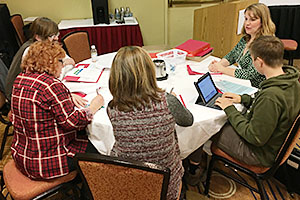
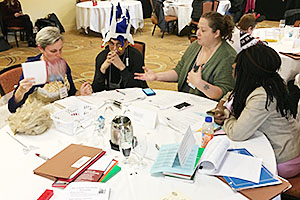
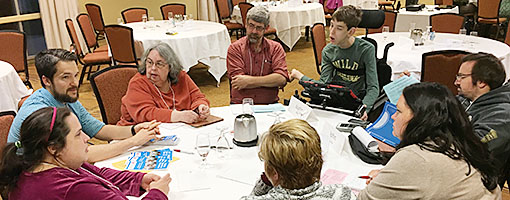
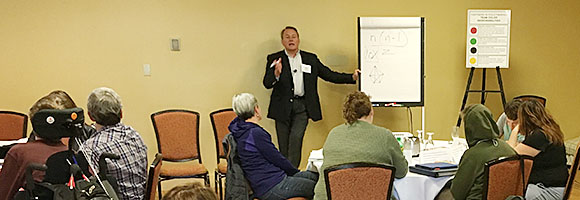
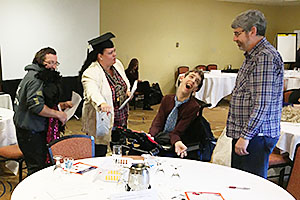
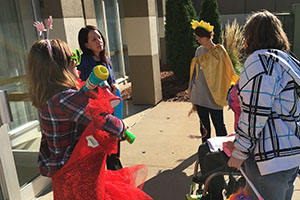
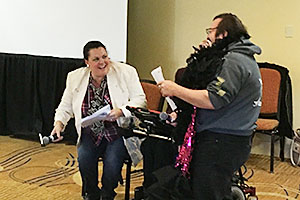
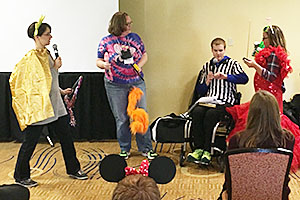
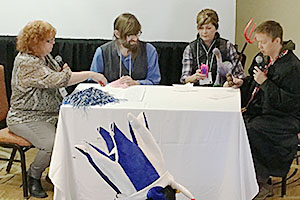
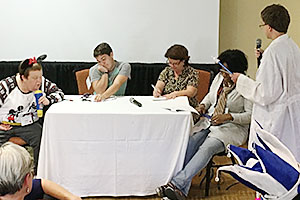
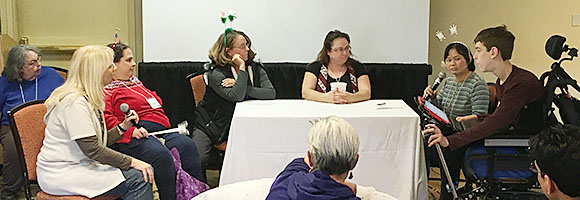
Weekend 3 (November 18-19, 2016)
November 18-19, 2016 introduced the county level of government, how counties are governed, the role and responsibilities of county commissioners, and the range of health and human services that are available at the county level. Participants worked in small groups to create vision statements for the Year 2020 and, using their creativity, showed their personal experiences with delivery systems using a bus as a metaphor. They also identified critical aspects of their world at high school graduation time. These practical exercises all served as preparation for meetings with county commissioners where they shared concerns and possible solutions about policy issues that can limit their independence and full inclusion in the community.
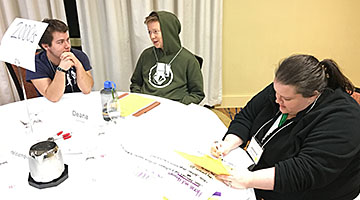
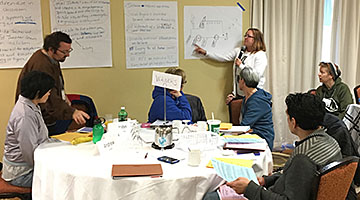
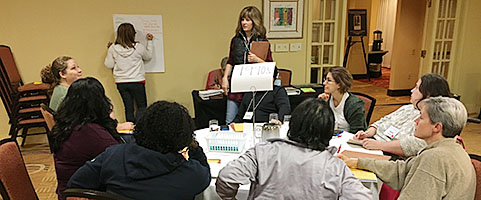
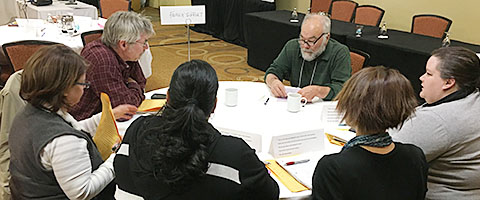
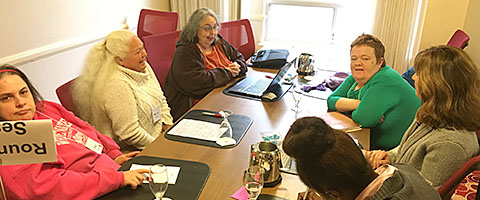
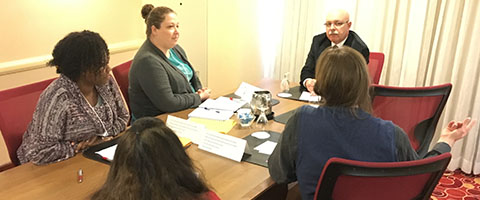
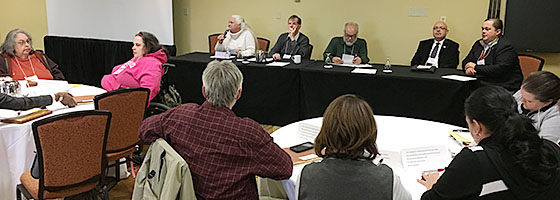
Weekend 4 (January 6-7, 2017)
Housing is housing, we all need a place to live, and people find various living situations that suit their needs at different times in their lives. Participants learned about cost of living factors, ownership alternatives, and the good and not so good points about home ownership. Likes and dislikes about various work environments were shared, and participants discussed what makes for a comfortable work environment depending on individual interests, strengths, abilities, and preferences.
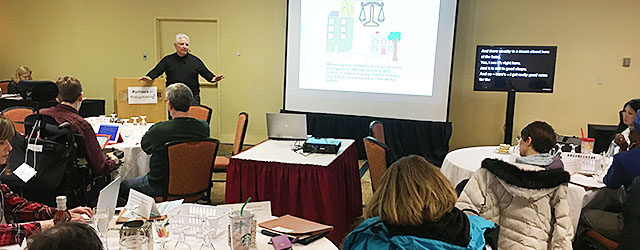
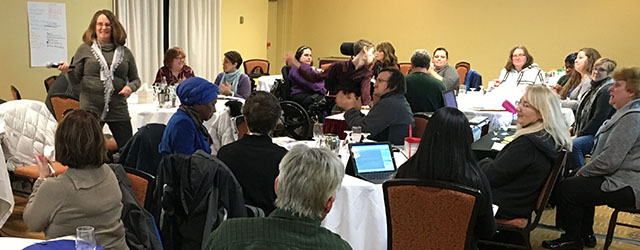
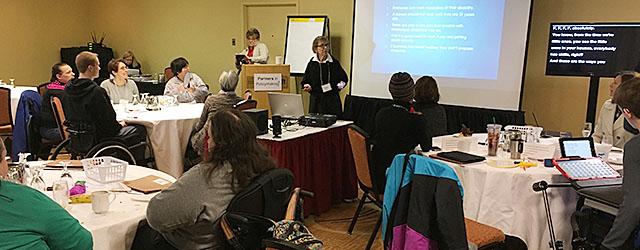
Weekend 5 (February 17-18, 2017)
Participants became well acquainted with the concept and principles of community organizing during the February 17-18 weekend session. This is a hands on topic and all components were presented and practiced – identifying goals and issues; identifying supporters and opponents, constituents and targets; planning a campaign around an issue; and strategizing on tactics that may help or hinder the success of any community organizing effort.
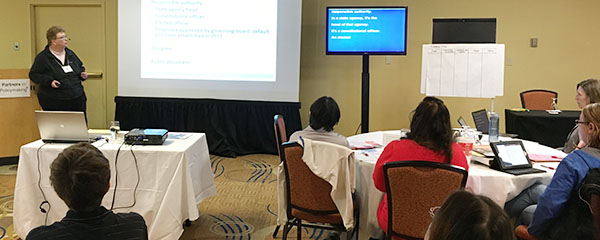
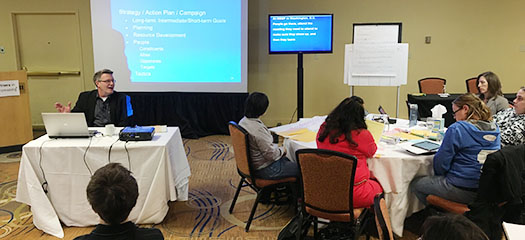
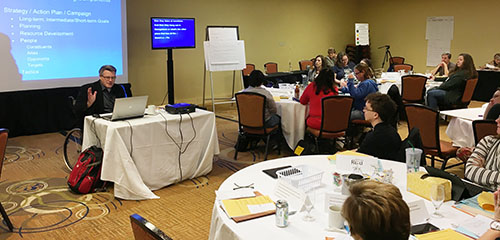
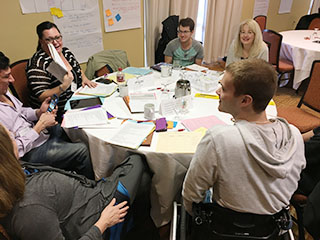
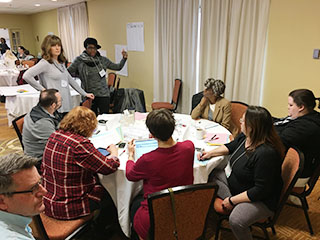
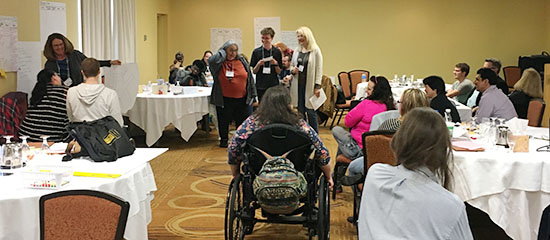
Weekend 6 (March 5-6, 2017)
Complete with quizzes, participants became familiar with the framework and workings of how an idea navigates through the bill making process; is debated, challenged, and moved in or out of committees to meet deadlines; and, if fortunate enough, is signed into law with an effective date. In mock hearings, participants learned about committee protocol and practiced their communication skills, speaking to a specific policy issue.
Information about the Governor's appointment process introduced participants to the many boards, committees and task forces that seek citizens from across the state to help shape state government policies and services. With the State Capitol restoration project nearly complete, a tour of the Capitol and visits with Senators in the new Senate Office Building were highlights.
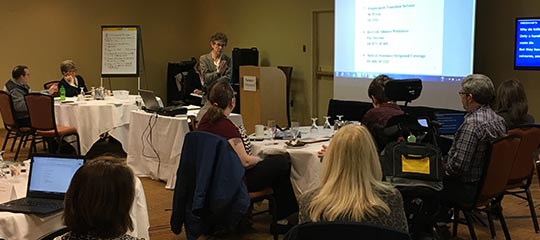
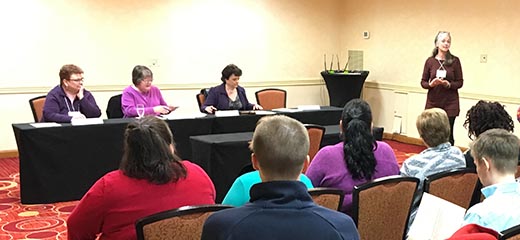
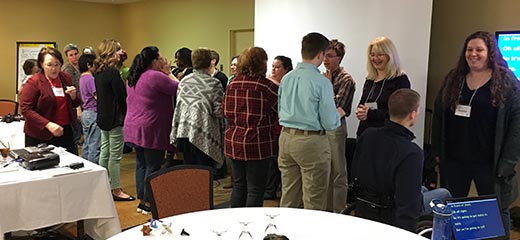
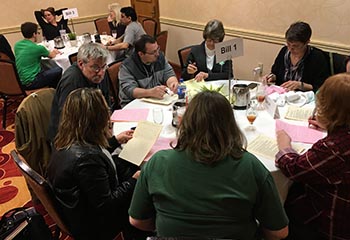
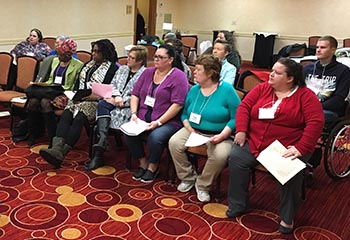
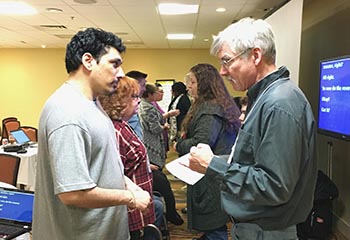
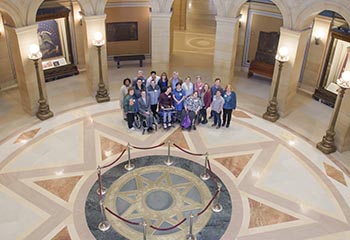
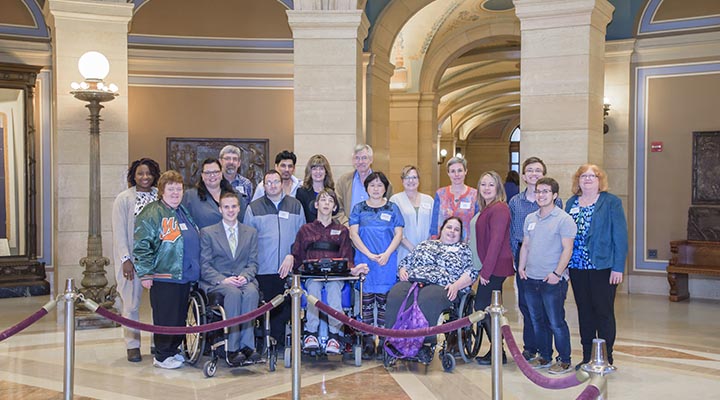
Weekend 7 (April 17-18, 2017)
Updates about issues of national concern included federal funding and key budget issues, Medicaid (proposals to create a per capita cap model or block grant funds), health care (repeal and replace the Affordable Care Act), Social Security, and ADA notification legislation. Participants met with Congressional staff to discuss these issues and request support for those programs and services that make it possible for individuals with developmental disabilities to be fully included in all aspects of daily living – active participants in their communities. The Honorable Donovan Frank spoke about disability justice, where he has been instrumental in efforts to educate the legal profession about disability issues, and the role that self advocates have played in teaching him about rights from their perspective.
